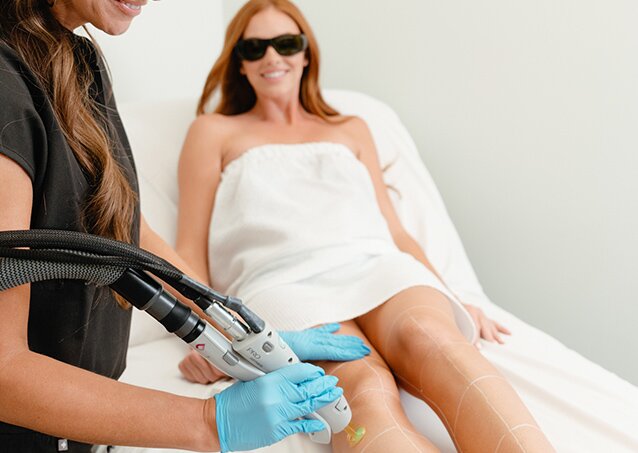An individual with skin cancer is no different from any other client interested in laser hair removal. Because as long as the skin appears normal, that client can likely enjoy the benefits of laser hair removal.
Any skin deemed cancerous or unusual-looking won’t be treated out of an abundance of caution. Assuming the area can be treated, it’s just like any other laser hair removal treatment.
The laser targets and destroys the hair follicle. With repeated treatments that occur every five weeks to begin the hair-free journey, clients will see results as soon as after the first treatment.


